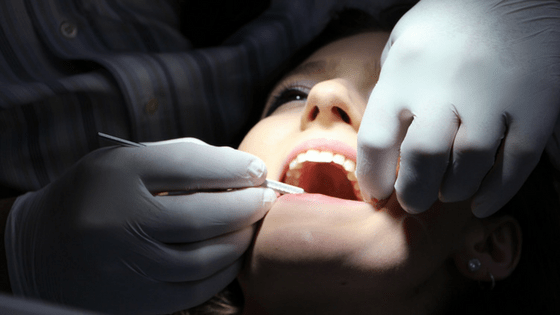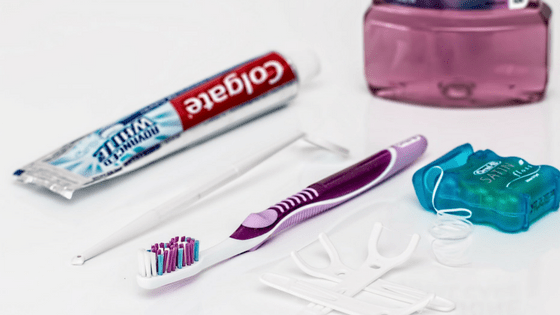The Link Between Oral health And Premature Birth
Most people accept the importance of brushing their teeth every day, after all, nobody likes the
idea of walking around all day with dirty teeth and bad breath. But many people are not aware
that poor oral health can have serious, far-reaching effects that go way beyond halitosis and
stained teeth.
The mouth can harbor more than 500 different strains of bacteria, some of which are harmful
and destructive. It is now known that bacteria in the oral cavity can travel through the
bloodstream and affect major organs and body functions. Oral infections, particularly, gum
infections are now being strongly linked with cardiovascular disease, Alzheimer’s, Pancreatic
Cancer, Bacterial Pneumonia, rheumatoid arthritis, and Prostatitis.
Poor oral health also comes with an added risk for women who are intending having children. It
is now known that oral bacteria can disseminate through the body and potentially attack the
fetus and result in a preterm birth. Infection is an important cause of premature births. But gum
disease can be a point of infection that often gets neglected or even goes unnoticed completely.
[1]
What is gum disease?
Almost half of the population has some level of gum disease and most people will probably be
affected by gum disease at some point in their life. In fact, millions of people have a degree of
gum infection and they don’t even know it! There are different types of gum disease, Some
more serious than others.
Gingivitis
Gingivitis is a mild, low-level form of infection that is often just caused by a poor level of oral
hygiene. If plaque is allowed to build up on the teeth for any length of time, there is a danger
that bacteria in the plaque can infect the gums and cause inflammation. At this early stage
there may be a slight feeling of tenderness in the gums or a little blood in the spit when teeth are
cleaned but in many cases, there can be no obvious symptoms at all. Gingivitis is easily treated
and completely reversible if tackled early and effectively.
Poor oral care is often the cause of Gingivitis but other contributing factors include – pregnancy,
diabetes, puberty, smoking, medications, drinking alcohol and aging.
Periodontitis
Periodontitis is the result of untreated gingivitis and is a more severe condition that can result in
gum, bone, and teeth loss. As plaque and bacteria spread below the gum line, the infection
causes the destruction of the supporting tissue around the teeth. The breakdown of gum tissue
allows pockets of space to develop between the teeth and gums. If left untreated, periodontitis
can eventually result in tooth and bone loss.
Gum disease and premature births
It is not too amazing to learn that advanced gum disease leads to receding gums and tooth loss,
but many people are surprised to hear that poor oral hygiene can influence the outcome of a
pregnancy. Although it has been known for many years that the health of the mouth can affect
various organ systems, it is only relatively recently that significant research has been done with
regard to linking periodontitis with poor pregnancy outcomes. Infections have long been known
to play an import role in preterm births and periodontitis is essentially a permanently open
wound with an accumulation of bacteria that can and does travel around the body via the blood.
Research lead by the University of Pennsylvania School of Dental Medicine found that by
successfully treating periodontitis in pregnant women they could significantly reduce their
chances of giving birth prematurely. The study looked at 322 women, all of which were suffering
from gum disease. The study group was split in two and half of the women received treatment to
control their gum disease. Out of the 160 who received treatment 49 were judged to have
responded successfully in that inflammation was controlled and deepening of gum pockets was
halted. The study found a dramatic reduction in preterm births among the women who received
successful treatment with only 8% having a premature baby compared to 62% of the women
where the treatment was unsuccessful.
Data from another US study of 1,313 pregnant women also concluded that subjects who had
severe generalized periodontitis had a significantly greater chance of giving birth to a premature
baby. [2]
Studies on small sample groups should always be treated with a healthy amount of skepticism
but evidence from other studies that are linking inflammatory infections with premature and low
weight births should be taken heed of.
Prevention
Obviously, prevention is better than cure! Having perfect oral health removes the risks
associated with oral bacteria. Maintaining good oral health is relatively simple in theory –
- Brush teeth twice a day for two minutes.
- Floss every day.
- Eat a sensible, well-balanced diet
- Schedule regular dental check-ups.
Although this sounds obvious and easy to adhere to, poor oral health statistics suggest that
many people are failing to clean away plaque effectively enough to avoid tooth decay and gum
disease. In addition, today’s demand for over processed foods, soda’s and energy drinks is
putting more of a strain on our oral health.

Best ways to avoid tooth decay and gum disease
Teeth brushing
Although we all know it is important to brush our teeth many people are not brushing properly
and effectively. Dentists recommend brushing for two minutes twice a day as that is about the
optimum time to clean all the teeth surfaces properly. For anybody who suspects that their tooth
brushing technique might not be quite up to scratch, an electric toothbrush can make all the
difference. Even cheap electric brushes like the Oral B 2000 come with a built-in timer and all
the cleaning power you need to give your teeth a thorough clean.
Flossing
Brushing teeth alone only cleans about 60% of the teeth surface area. To remove plaque
completely, regular flossing should be part of everyone’s daily routine. Flossing is usually done
with dental floss or interdental brushes but for people who find flossing awkward or tedious, the
best option might be a Waterpik water flosser.

Taking oral health to the next level
There are some other tips and tricks you can use to further improve oral health.
- Chew gum. Chewing gum not only increases saliva flow to cleanse the teeth, gums,
and tongue it can also trap and remove millions of bacteria from the mouth. - Substitute normal table sugar for Xylitol. Unlike normal sugar, oral bacteria can’t
feed off and process Xylitol as an energy source. - Get a good tongue cleaner. Over 80% of bad breath comes from the coating of
bacteria and food residue on the tongue. Scraping the tongue every day can go a long way to
freshening breath and removing harmful bacteria. - Try oil pulling. Although there has been little official research into the effectiveness
of oil pulling, there is enough anecdotal evidence to suggest that high levels of bacteria may
well be removed by oil pulling. - Drink soda through a straw rather than sipping from the glass. Avoiding letting acidic
drinks come into contact with the teeth can prevent teeth erosion and staining.
Takeaway thoughts
Firstly, prevention is always better than cure. Being aware of the dangers associated with poor
oral health and taking the necessary steps to avoid an accumulation of bacteria and infection is
key to keeping a healthy mouth. For women, oral health can be especially important. Hormone
changes during pregnancy can cause “pregnancy gingivitis”, where the gums can become even
more sensitive to bacterial plaque. Regular dental checkups are important for everybody, but
especially for pregnant women.
Footnote
- Preterm low birth weight and
the role of oral bacteria - Periodontal infection and preterm birth:
results of a prospective study.
Give this post some LOVE on Instagram!
 Kaboutjie SA Mommy Blogs by Lynne Huysamen
Kaboutjie SA Mommy Blogs by Lynne Huysamen






Thank you I never thought that oral problem can affect the pregnancy
I didnt know oral health have such a big impact on pregnancy…i must say i had a problem with my gums bleeding sometimes and for some reason i had the prefect oral health in my pregnancy never had bleeding gums again but its good know so while being pregnant make extra sure or oral health and make sure you even go the extra step to ensure good oral health.
So informative
Yes I’ve heard some interesting things about how your dental health can affect your pregnancy! I went and had a checkup and made sure that I got all my dental work done before I fell pregnant each time, just in case.